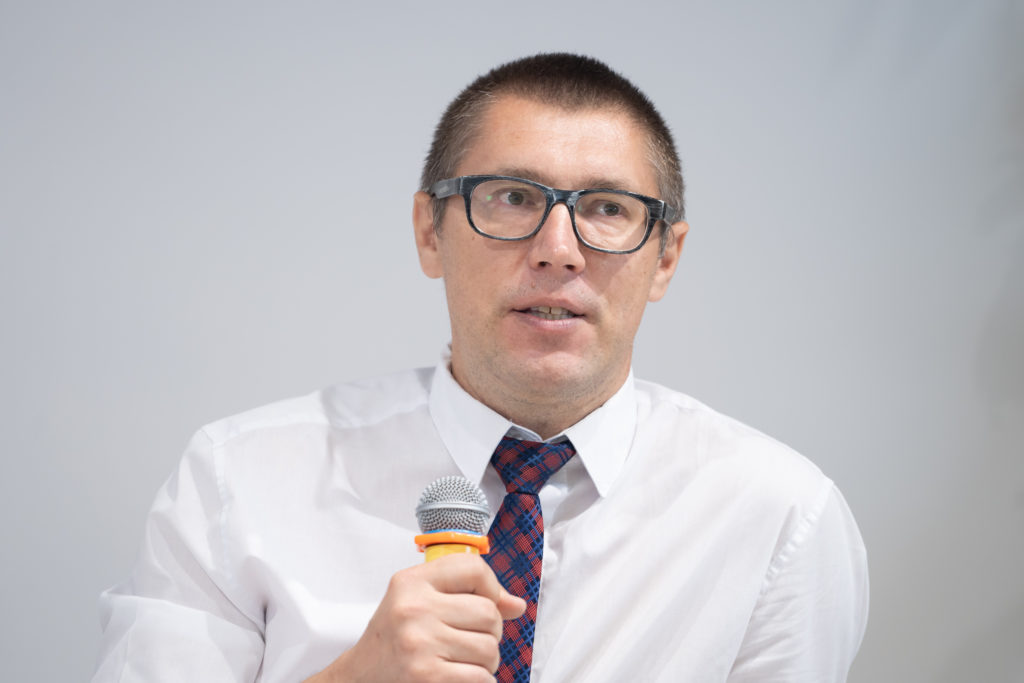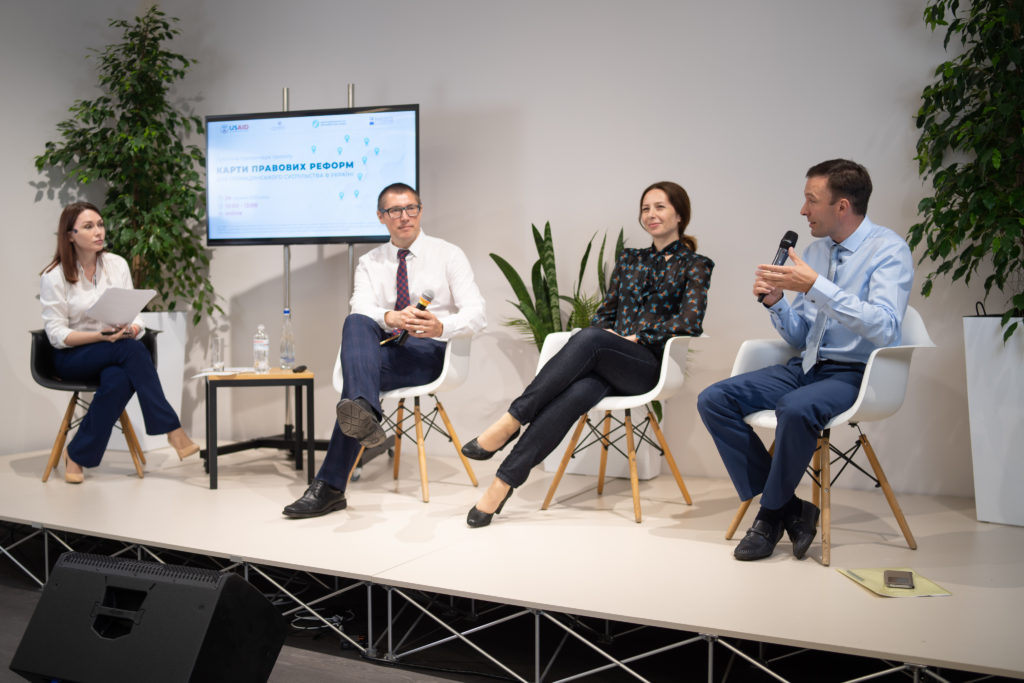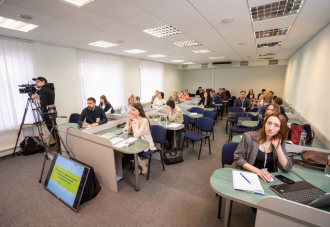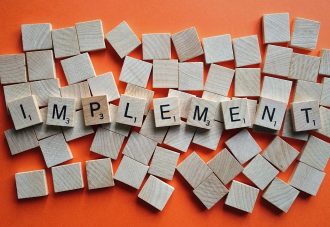On June 24, 2020, the Centre for Democracy and Rule of Law (CEDEM) together with the Ukrainian Center for Independent Political Research (UCIPR) in a consortium with the Initiative Center to Support Social Action “Ednannia” presented a draft Legal Reforms Roadmap for Civil Society in Ukraine within the Ukraine Civil Society Sectoral Support Activity project.
Legal Reforms Roadmap for Civil Society is an analytical, visionary, and policy document that outlines the civil sector’s vision of reform priorities and improves Ukraine’s civil society organization’s legal environment for 2021-2025. The Legal Reforms Roadmap should form the basis of the new National Strategy for Facilitating Civil Society Development in Ukraine.
The Roadmap draft presentation took place online. At the same time, speakers from the regions who worked together on the Roadmap, in particular from Lviv, Kharkiv, Ivano-Frankivsk, and Lutsk, joined the speakers in the studio. Ilona Dovhan, TV and radio presenter, was the event moderator.
Development of the Reforms Roadmap is one of the areas of the comprehensive Ukraine Civil Society Sectoral Support Initiative implemented by the Consortium, emphasized Volodymyr Sheyhus, Executive Director of the Initiative Center to Support Social Action “Ednannia”. “This is the second area of the project – improving the legal environment. We are now monitoring the situation and clearly understand that we must form a vision of work areas to join forces. The goal is to improve the environment that will enable us to fulfill our mission effectively and meet the needs of the target groups for which we work.”
The draft Roadmap is not only a result that shows the way forward but also a testament to the strength of civil society, which has been able to join forces, find common solutions and be able to move forward, emphasized Svitlana Kononchuk, UCIPR Executive Director. “This is a job for the whole society, so it will be important for everyone involved to make their adjustments, give comments and advice before paving the way. The Roadmap will be discussed in the regions and with different parties, as it should serve as the basis not only for the public sector but also for the authorities”, added the expert, also thanking the organizers for a creative and convenient platform for work.
It is worth noting that the Legal Reforms Roadmap was developed by more than 150 representatives of civil society organizations from different regions of Ukraine, who were investing their knowledge, experience, and vision from March to June 2020 to jointly develop a vision for civil society development in the coming years. Representatives of international organizations and public authorities also participated in the development of the document at the consultations.
At the beginning of the Roadmap development, CEDEM and its partners saw it as a special value document: the project was to be created directly by civil society organizations. The cooperation and synergy of active citizens allowed us to create a unique analytical document, emphasized Olesia Kholopik, Deputy Director of the Centre for Democracy and Rule of Law.
“Yes, this is only the first stage, global and large-scale though, the document will still be FINALIZED. And we, the Consortium, will continue to fulfill our mission: we will support and form a community of like-minded people who will defend and advocate for the decisions set out in the document”, she said.
According to Taras Shevchenko, director of the Centre for Democracy and Rule of Law, all concerned citizens can read the text of the document now (the draft is available at the link). The final version of the Roadmap should be ready in September; this is when the final presentation will occur.
“When we started working on the project, we realized that it would be great to engage and bring together all stakeholders, all organizations to work together to develop a document. The document is intended not only for us but for the whole country; it can be taken by the Government and used for the National Strategy for Facilitating Civil Society Development”, stressed Taras Shevchenko. The work was based on the RPR Coalition experience, which promoted reforms through its own Roadmap.
Therefore, the Roadmap developers’ task was not only to identify problems but also to find solutions to them, said Maksym Latsyba, head of the UCIPR Civil Society Development Program. “And another goal is to bring civil society together to protect their rights and interests. Thanks to you, we did it. We have identified 91 problems faced by civil society,” he concluded.
The expert stressed that the Roadmap’s implementation is a joint work of both the government and civil society to continue in new formats. “As of today, we are starting to create the National Strategy for Facilitating Civil Society Development for civil servants. I am hoping for a working group at the Cabinet of Ministers, which we will all join. And we will turn our recommendations into a government document, with a clear plan: what the Government and local self-government should do to create a favorable legal environment for CSOs,” announced Maksym Latsyba.
Experts from civil society organizations, particularly from different regions of Ukraine, presented their work on each of the eight sections of the Roadmap. They cover key CSO topics: the legal status of organizations; taxation of public and charitable activities; state financial support of the sector; involvement of CSOs in social services and social entrepreneurship; development of volunteer activity; security of activists and CSOs; state policy to promote CSO development; public participation in the formation and implementation of government decisions.
You can watch the video of the draft Legal Reforms Roadmap presentation by the link.
This event is made possible by the generous support of the American people through the United States Agency for International Development (USAID) within the Ukraine Civil Society Sectoral Support Activity implemented by Initiative Center to Support Social Action “Ednannia” in partnership with the Ukrainian Center for Independent Political Research (UCIPR) and the Centre for Democracy and Rule of Law (CEDEM).







